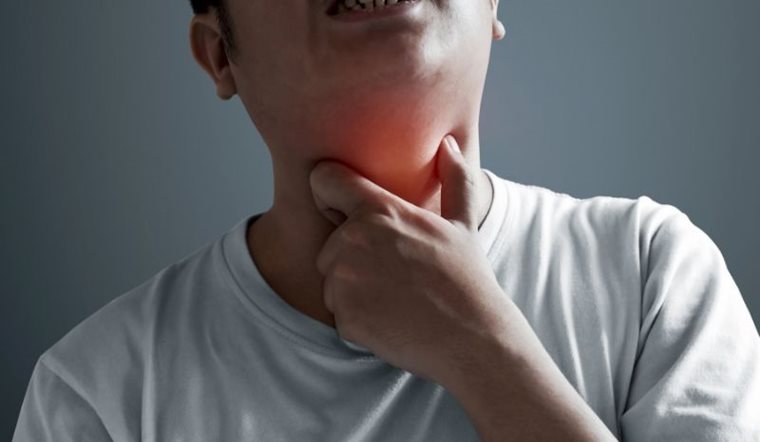Voice cracking, whether during puberty or after, is no longer a rare occurrence. Why does this happen? Let’s find out the answer in today’s article!
1 Structures that Form the Voice
 Structures that Form the Voice
Structures that Form the Voice
The formation of the voice is a combination of the following elements:
- Air pushed out from the lungs
- Vibration of the vocal cords in the throat
- Activity of muscle groups inside and around the larynx
- During speaking, singing, etc., the laryngeal muscles will contract, relax, open, and close.
2 Causes of Voice Cracking
Puberty
Puberty is one of the main and most common causes of voice cracking. If you experience voice cracking during puberty, there is no need to worry as it is a normal part of bodily changes. At this time, due to the increased secretion of growth hormones, the vocal cords will undergo certain changes, becoming thicker and larger.
 Causes of Voice Cracking
Causes of Voice Cracking
Pushing the Voice Too High or Too Low
The movement of the laryngeal muscles can raise or lower the pitch of your voice. However, these muscles work most effectively when trained and moved slowly. If you suddenly strain your laryngeal muscles to raise or lower your voice, they will become tense and lead to temporary voice cracking.
Dehydration
Your vocal cords need to be moisturized to move and function smoothly. Insufficient water intake will affect the efficiency of your vocal cords, resulting in unclear and cracked speech.
Vocal Cord Injury
 Vocal Cord Injury
Vocal Cord Injury
Vocal cord injury occurs when the vocal cords are overworked for an extended period, such as during singing or shouting. Additionally, acid reflux, sinus infections, and other issues can also damage the vocal cords, resulting in voice cracking and difficulty speaking normally.
Laryngitis
Laryngitis is the inflammation of the vocal cords or laryngeal muscles, which can be caused by a virus or excessive talking. Laryngitis will cause your voice to crack and sound harsh, and you may also experience pain while speaking.
Stress
Anxiety and stress can cause the laryngeal muscles to tense up, restricting their free movement and resulting in a cracked voice.
3 What to Do If Your Voice Cracks
 What to Do If Your Voice Cracks
What to Do If Your Voice Cracks
If you experience voice cracking that is not due to puberty, you can try the following methods to reduce and prevent it:
- Drink at least 2 liters of water per day to moisturize your throat and larynx. This will help the laryngeal muscles function more smoothly and efficiently.
- Avoid sudden changes in pitch when speaking, such as going too high or too low, to prevent vocal cord injury due to abrupt adjustments.
- Practice breathing exercises to control the volume of your voice and increase lung capacity.
- Use cough syrups or lozenges to alleviate pain and reduce inflammation in the larynx.
4 How to Prevent Voice Cracking
 How to Prevent Voice Cracking
How to Prevent Voice Cracking
To prevent voice cracking, you need to change some bad habits and implement the following measures:
- Reduce or quit smoking: Cigarettes contain many harmful chemicals that can damage your throat and larynx.
- Reduce stress: Continuous stress can cause your vocal cords to become tense and function improperly. Maintain a relaxed and calm state of mind to ensure smooth vocal cord movement.
- Learn to control your voice: Consult voice specialists or learn methods to control your voice to achieve a stable and consistent tone.
We hope that through today’s article, you have gained insight into the causes of voice cracking and how to prevent it. Protect your voice by cultivating good habits and avoiding harmful ones. Take care of your vocal health!
Source: youmed.vn
Should Teenagers Use Facial Cleansers during Puberty to Help with Skin Care?
 Puberty to Help with Skin Care?’>
Puberty to Help with Skin Care?’>Navigating skincare during puberty can be a challenge. With skin that is both extra sensitive and prone to acne, it can be difficult to figure out the best way to keep your face looking clear and healthy. Here’s what you need to know to take care of your skin while going through this stage of life.
Ways to Beat the Summer Heat: 10 Cool Strategies
With temperatures soaring to over 40 degrees Celsius in some parts of the northern region, this summer heatwave is causing considerable discomfort and inconvenience. The roads are practically melting in some areas. To keep yourself safe and bearable, here are some tips on how to cope during these hot days.





































